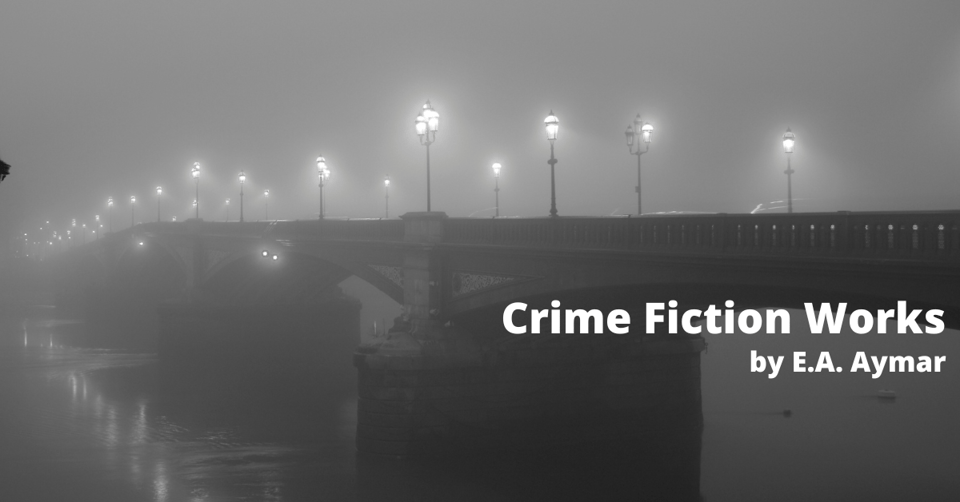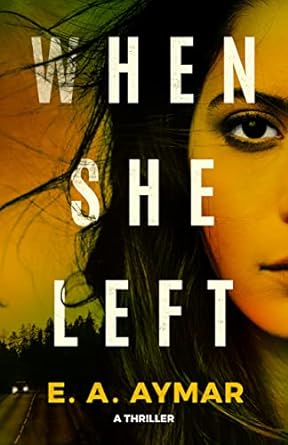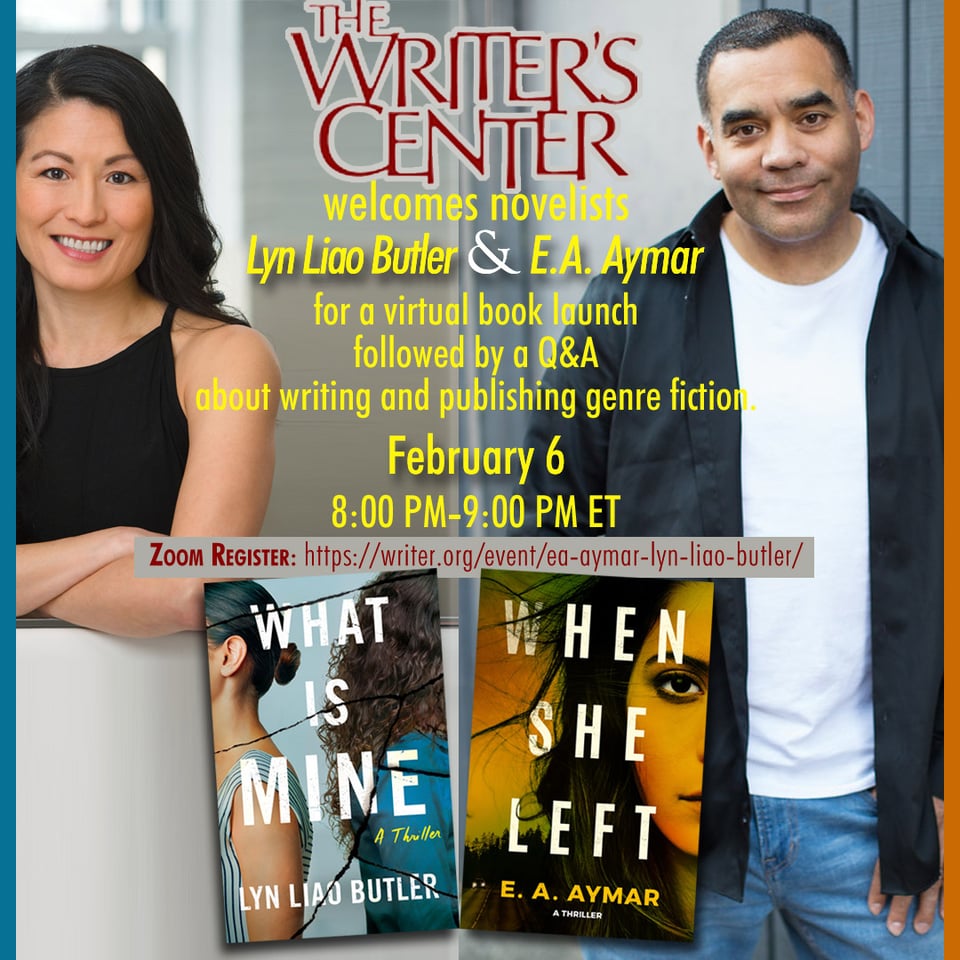Why She Left


Until now, all of my novels were almost entirely told by women.
There were men, of course, but I was more interested in the motivations and reactions and insights of the women. The stories revolved around them, and my men were typically sidekicks or antagonists. So I was a bit surprised, when I started writing When She Left, that the male characters began clamoring to be heard (as us men do, seriously, have you been around us when we have a slight man-cold).
All of the books I’ve written (and maybe this is true of every writer) are reflections of development. My first’ish book, The Unrepentant, was harsh and violent. They’re Gone verged much more into commercial, psychological drama. No Home for Killers was, with the diametrically opposed sisters Melinda and Emily Peña, an attempt to marry those elements of violence and psychological drama. I had an urge, in those early books, to write about conflict and how it affected people. And in those books, violence peppered the pages.
But now I just have the urge to write about people.
When asked, I always used to say that I write about relationships. But that didn’t seem like the kind of answer that would sell books to a crime fiction audience, so I changed it. And yet relationships are the brunt of what fascinates me. I still see writing through the prism of crime fiction, so there’s always going to be that element, a little bit of stabbin’ here or there. That hasn’t changed. But an understanding of why I write has.
I was helped with this understanding by two good friends and wonderful writers – Eliza Nellums and Jennifer Hillier. Eliza pressed me to write about men and their emotions, because men are rarely, honestly, examined in crime fiction (outside of violence). And when I asked Hillier about this approach and how daunting the concept is, given that women in psychological fiction are already doing this so well, she said, bluntly, “If a man wrote well about relationships, I’d read the sh*t out of his books.”
When She Left is the story of a young couple on the run from criminals, and the reluctant hitman/real estate agent hired to find them. But it’s also the story of how men react to loss, particularly the loss of women. The concept was inspired by Hemingway’s short story collection, Men Without Women, which told stories of men who have lost (what Hemingway considered) their feminine side. I wasn’t as interested in covering that ground, but I did want to explore different men dealing with losing loved ones, and how that absence can affect their assuredness. Their volatility.
In When She Left, the young couple that runs off are Melissa Cruz and Jake Smith and, in doing so, Melissa had abandoned her crime boss boyfriend, Chris Winters (Chris, admittedly, doesn’t react well to this).
Lucky Wilson, the hitman hired to find them, opens the story dealing with a potentially heartbreaking betrayal from his wife.
Jake Smith’s character is partially informed by how he and his mother angrily left each other.
And Melissa Cruz is at the center of these men, slowly realizing (as we do in maturity) the need to determine both her path and place.
And so When She Left is a bit of a different book for me and that’s always worrisome, but I’ve been so happy with the feedback. The trade review from Booklist was glowing. firstCLUE loved it. Whenever I nervously peek at GoodReads, the readers are happy. I feel, more than I ever have, that this book is representative of me. The story couldn’t be more different from my actual life, but these characters are my blood.
Today is When She Left’s publication day. I hope you enjoy it (and I hope you buy it, because I want to write more).
It’s daunting and wonderful to be this excited.
EA

EA

I’ll be doing a launch event tonight at 8 pm ET, virtually, with my friend Lyn Liao Butler through the Writer’s Center. Lyn and I both have books coming out today (we share the same publisher and editor) and we plan to spend the first half talking about our books, and the second half doing a Q&A about writing and publishing genre fiction. And making fun of each other. You can register for this free event HERE.

But I don’t want to make this all about myself (actually, I’m fine with that). So let’s boost some other writers!
Face Her Fear by Lisa Regan
I just finished this book over a four-day span – and it would have been one day if I didn’t have, like, a family and day job and the need to eat. This is Lisa’s 19th novel in her celebrated, WSJ-bestselling Josie Quinn series, and it’s unrelenting in its tension. I’ve read Lisa before, of course, but I simply haven’t had the time to shamelessly indulge and bury myself in the Josie Quinn books. This book is a reason why I, and everyone, should.
Smoke Kings by Jahmal Mayfield
I reviewed this book for The Washington Post this weekend, so I won’t say that much about it in this space except that I really liked it (aside from one little thing) and it has the potential to be one of the most-discussed novels of 2024 (again, aside from one little thing).
The County Line by Steve Weddle
It’s not easy for a writer to make such a loud splash that, years after their debut, their second novel is eagerly anticipated. Most of us tend to be forgotten if we don’t regularly publish. But Weddle’s debut, Country Hardball, was so rich in its writing and well-done that its impact is still felt. There was a lot of excitement when County Line was announced, and it just came out. There are some writers that others writers openly admire (not many because, privately, we’re very judgy), and Weddle is one of them. One of your favorite writer's favorite writers.
Hurt for Me by Heather Levy
Levy’s debut, Walking Through Needles, was justly celebrated for its nuanced understanding of both trauma and kink culture, and Hurt for Me is a continuation of her unique perspective and singular voice. I often say that we’re at a changing moment in crime fiction, and I think writers like Levy – who are fearlessly discussing subjects that have long been considered taboo – are going to be seen as the leaders.
Almost Surely Dead by by Amina Akhtar
I first came across Amina on social media, since we had so many friends in common, and I was a bit intimidated by her. She’s fearless, and has no problem calling out BS when necessary (as opposed to me, who prefers to sit silently and fume and then, three months later, write an essay about what bothered me). That fearlessness carries over into her writing, as she employs her wit and insight into satirizing popular trends…but without ever losing compassion or knowledge of her characters. Her newest novel, Almost Surely Dead, has been garnering critical praise from every corner, as indicated by this profile in the LA Times.

It's giveaway time! For this newsletter, I'll give away a copy of When She Left and any one of the books listed above (winner's choice). And the winner is:
Congrats! I'll reach out to you soon.

I want to end with a quick thank you to anyone who’s reading this now. I’ve said a lot that doing this newsletter is one of the things I love most about writing, and the feedback and dialogue with you all is wonderful. I hope you buy and read and like When She Left, of course, and all my books, but I also hope you find this newsletter informative and entertaining.
It’s nice to share what I love with you.
Add a comment: